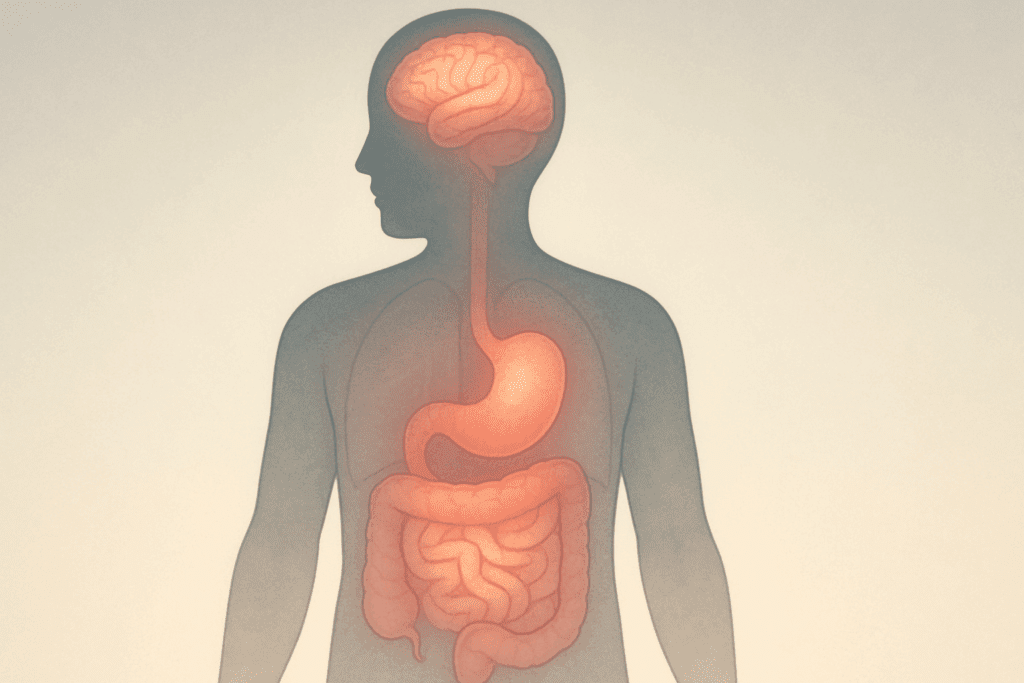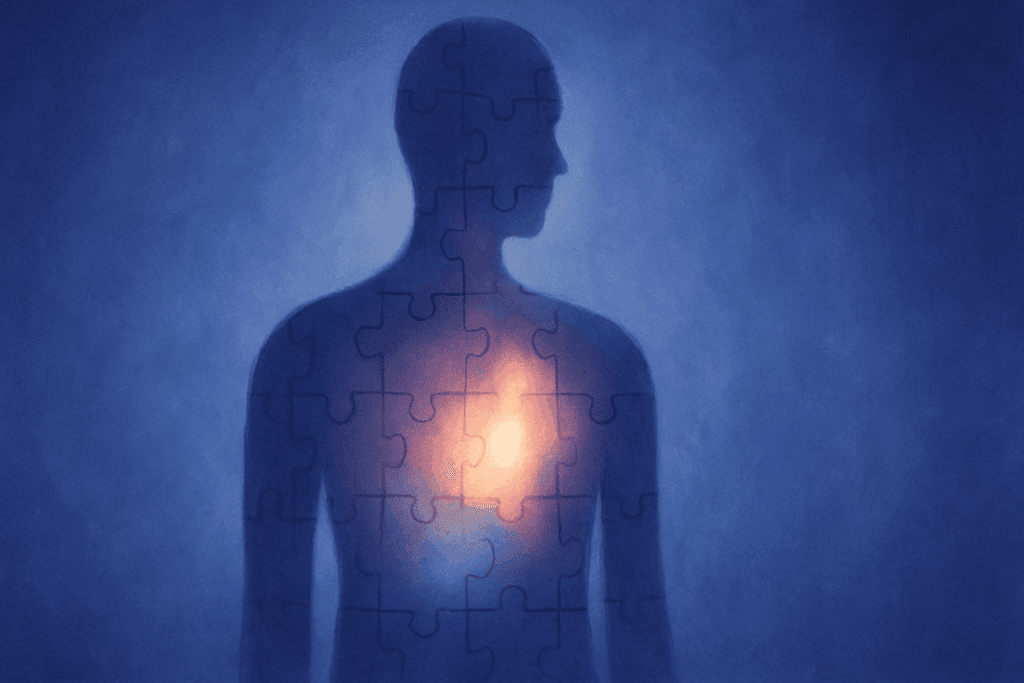Many people have a complicated relationship with food, but when someone begins to consistently think, “Why do I hate eating?” it may signal a deeper issue. This aversion isn’t just about picky preferences or occasional loss of appetite; it often reflects underlying physiological, psychological, or lifestyle-related challenges that deserve closer examination. Eating is a basic human function, but for some, it becomes an emotionally charged or physically distressing experience. Addressing this issue requires a blend of empathy, expertise, and practical strategies, especially when guided by principles of mindful nutrition. For those struggling to understand their food aversions, it’s important to recognize that these feelings are valid and frequently linked to broader wellness concerns. By exploring the root causes and adopting mindful, health-oriented approaches, individuals can begin to repair their relationship with food in a sustainable and compassionate way.
You may also like: How to Stop Emotional Eating and Regain Control: Mindful Nutrition Strategies That Support a Healthier Lifestyle

Understanding the Psychological Roots of Food Aversion
When someone says, “I hate eating,” it often stems from more than just disliking the taste or texture of food. Psychological factors are among the most powerful forces shaping our behaviors and perceptions around nourishment. One common driver is anxiety. Social anxiety, in particular, may cause individuals to feel deeply uncomfortable eating in front of others, which can gradually turn into a broader aversion to food altogether. Similarly, generalized anxiety or obsessive-compulsive tendencies may lead to restrictive food behaviors rooted in control or fear of contamination.
Trauma is another significant contributor to disordered eating habits. Individuals who have experienced abuse, neglect, or other forms of trauma may associate eating with emotional pain or loss of control. This can manifest in ways that feel like disgust toward food, even when the body physically needs nourishment. Depression, too, plays a major role. One hallmark symptom of depressive disorders is a loss of interest in activities, including eating. For people experiencing such symptoms, food can seem joyless, tasteless, or even repulsive.
Another overlooked factor is body image disturbance. Cultural pressures, diet culture, and perfectionism can lead individuals to internalize the idea that eating is something to be ashamed of. This mental framework can be especially damaging, as it disconnects people from their intuitive hunger signals and fosters guilt or anxiety around meals. Addressing these psychological influences requires a compassionate, multi-pronged approach that often includes therapy, supportive community engagement, and nutritional rehabilitation.

Biological and Medical Factors That May Affect Appetite
While psychological roots are crucial to examine, there are many legitimate medical reasons why someone might say, “I hate eating.” Chronic illnesses such as gastrointestinal disorders, thyroid imbalances, or autoimmune diseases can all interfere with appetite regulation. For instance, individuals with conditions like gastroparesis, where the stomach empties too slowly, may experience persistent nausea, bloating, or early fullness, which naturally leads to food avoidance. Inflammatory bowel diseases like Crohn’s or ulcerative colitis can make eating painful or unpredictable, discouraging consistent meal patterns.
Hormonal shifts also play a role in appetite regulation. Changes in estrogen, cortisol, or leptin levels can significantly impact hunger and satiety cues. For example, high cortisol levels caused by chronic stress may initially stimulate appetite, but over time can also lead to appetite suppression and fatigue. Similarly, disruptions in leptin—a hormone that helps regulate energy balance—can cause the body to miscommunicate hunger signals.
Certain medications are another factor. Appetite suppression is a common side effect of various drugs, including stimulants used to treat ADHD, antidepressants, and some blood pressure medications. While this may be helpful in specific therapeutic contexts, it can also inadvertently reinforce aversive attitudes toward food. Moreover, neurological conditions such as dementia or traumatic brain injuries may interfere with the brain’s ability to register hunger, recognize flavors, or coordinate the physical act of eating.
Nutrient deficiencies themselves may paradoxically cause a disinterest in food. For instance, low levels of zinc or B vitamins can dull the senses of taste and smell, making eating less pleasurable or even unpleasant. In such cases, addressing the deficiency through mindful supplementation and targeted dietary changes can help restore the desire to eat. Understanding these biological mechanisms is essential for those trying to answer the persistent question: “Why do I hate eating, even when I know I need to?”

The Role of Lifestyle and Environmental Influences
Daily habits and environmental conditions also play a surprisingly large role in shaping one’s relationship with food. Modern life often promotes speed and convenience over intentionality, which can result in disordered patterns of consumption. Skipping meals due to a hectic schedule, relying heavily on processed foods, or constantly eating on the go all weaken the body’s natural hunger and fullness cues. Over time, this can create a cycle where eating feels like an obligation rather than a nourishing act.
Sleep quality and circadian rhythm disruptions are additional lifestyle factors worth considering. Poor sleep is associated with reduced ghrelin and leptin sensitivity—two hormones that help regulate hunger and satiety. A lack of sleep may therefore not only dull the appetite but also make the process of eating feel more exhausting than enjoyable. Physical inactivity can also contribute to appetite dysregulation. The human body is designed to eat in response to energy expenditure; when we move less, our hunger signals become blunted, leading some to believe they simply hate food.
Cultural attitudes and family dynamics may exert subtle but profound effects. For instance, those raised in environments where food was overly controlled, moralized, or associated with conflict may have developed a lasting aversion to eating. Exposure to diet culture, fatphobia, or constant scrutiny over food choices can leave individuals feeling shame or confusion about what, when, and how to eat. Even in well-meaning households, messages like “clean your plate” or “don’t eat too much” can distort a person’s intrinsic understanding of hunger and satiety.
Additionally, economic and food security concerns can make eating stressful rather than joyful. If someone is constantly worried about affording groceries or accessing nutritious meals, their relationship with food may naturally become fraught. In such cases, mindful eating practices that emphasize presence, gratitude, and resourcefulness can offer some healing, but broader systemic changes are also necessary to support long-term recovery.

Exploring the Mind-Body Disconnect Behind Appetite Loss
A central theme in many cases of food aversion is a profound disconnect between the mind and body. People who frequently think, “I hate eating,” may not actually hate food itself, but rather the internal chaos or discomfort they associate with eating. Mind-body disconnection can develop for a range of reasons, from trauma and chronic stress to burnout and emotional suppression. When we become detached from our internal cues, we may lose the ability to interpret hunger accurately or derive satisfaction from eating.
Emotional numbness, for example, is a common byproduct of chronic stress or trauma. It flattens affect and can make all experiences, including eating, feel muted or meaningless. This emotional blunting often leads individuals to stop responding to hunger cues or to see eating as a pointless or even burdensome task. Additionally, when food becomes entangled with guilt or shame, it creates a feedback loop in which the body sends hunger signals, but the mind blocks them with fear, disgust, or apathy.
Reconnecting the mind and body involves cultivating greater interoceptive awareness—the ability to sense internal bodily states. This can be achieved through practices like meditation, breathwork, gentle movement, or therapeutic interventions that encourage emotional processing. Journaling, body scanning, and self-reflection exercises can also help individuals begin to notice when and how their hunger arises. Over time, this awareness can transform the question “Why do I hate eating?” into a more nuanced understanding of unmet needs and unprocessed emotions.

How Mindful Nutrition Can Support a Healing Relationship with Food
Mindful nutrition offers a powerful, evidence-based approach to healing from food aversion. Rather than focusing solely on what to eat, mindful eating emphasizes how and why we eat. This shift in perspective encourages individuals to develop curiosity and compassion toward their food experiences. Mindful eating is not a diet; it is a practice rooted in presence, patience, and intentionality.
One foundational concept of mindful nutrition is eating without distraction. This means turning off screens, putting away work, and giving full attention to the sensory experience of eating. For someone who says, “I hate eating,” this practice can be a gentle way to rediscover food’s textures, flavors, and aromas without judgment. By tuning into how the body feels before, during, and after meals, individuals can begin to rebuild trust in their hunger and fullness cues.
Mindful eating also encourages self-compassion. This is especially important for those with a history of disordered eating, body image issues, or chronic dieting. Instead of labeling foods as “good” or “bad,” the focus shifts to how different foods make the body feel. This nonjudgmental approach allows individuals to honor both their nutritional needs and emotional well-being. Over time, this can soften the inner critic that may have once said, “I hate eating,” and replace it with a voice of care and curiosity.
The practice of gratitude is another cornerstone of mindful nutrition. Taking a moment to appreciate the effort behind a meal—from the farmers and workers who produced it to the hands that prepared it—can transform eating from a chore into a ritual of connection. This can be especially healing for those who feel disconnected from food or who struggle with negative associations around meals. Gratitude helps ground the eating experience in something larger than individual taste preferences, making it more meaningful and emotionally nourishing.

Practical Steps for Rebuilding a Positive Relationship with Food
While understanding the root causes of food aversion is essential, healing also requires practical, actionable steps. One such step is establishing consistent meal patterns, even if appetite is low. The body thrives on routine, and regular eating times help regulate blood sugar, support hormonal balance, and reinforce hunger cues. Starting with small, manageable meals or snacks can help ease the body back into a rhythm of nourishment.
Working with a registered dietitian or integrative nutritionist can also provide personalized support. These professionals are trained to address both the physiological and emotional dimensions of eating and can guide individuals in creating sustainable, nourishing meal plans that respect their preferences and limitations. Nutritional counseling may also involve exploring supplementation for deficiencies that contribute to appetite loss, such as zinc, magnesium, or vitamin B-complex.
Incorporating gentle movement, such as yoga, walking, or stretching, can stimulate appetite by improving circulation and enhancing mood. Physical activity encourages the release of endorphins and other neurotransmitters that regulate hunger and pleasure. For those who feel disconnected from their bodies, movement can also be a powerful way to rekindle awareness and appreciation for physical sensations, including hunger.
Mindful food journaling can further support recovery. Unlike traditional food diaries that focus on calories or restrictions, mindful journals invite individuals to explore their thoughts, emotions, and physical sensations before and after eating. This can uncover patterns, triggers, and emotional associations that contribute to food aversion. Over time, journaling helps individuals become more attuned to their needs and more confident in their ability to nourish themselves.
Social support plays a crucial role in this process. Sharing meals with trusted friends, family members, or support groups can reduce anxiety and increase enjoyment. Creating a safe, judgment-free environment around food allows individuals to experiment with new habits, express their struggles, and receive encouragement. Healing from food aversion is rarely a solo journey; community can offer the validation and accountability needed for long-term change.
Frequently Asked Questions: Understanding Food Aversion and Mindful Nutrition
Why do I hate eating even when I know my body needs food?
The conflict between mental aversion and physical need can be deeply distressing. Often, when people say, “I hate eating,” they are experiencing an emotional block rather than a true dislike for food itself. This could stem from past trauma, rigid food rules, or an internalized fear of losing control. The body might still send hunger signals, but the mind resists acting on them due to anxiety, guilt, or discomfort. In such cases, building a gentle bridge between body awareness and emotional processing—through mindful practices and professional guidance—can help reduce this aversion over time.
Can chronic stress explain why I hate eating in certain environments?
Absolutely. High-stress environments, such as a demanding workplace or a tense home, can condition the brain to associate food with anxiety. If your nervous system is on high alert, your body may shift out of its “rest-and-digest” state, which dampens appetite and makes eating feel unnatural or even repulsive. This could explain why you might find yourself saying, “Why do I hate eating at work or around certain people?” Creating a safe, calming ritual around meals—even something as simple as a deep breath or a quiet space—can signal your body that it’s safe to eat, potentially improving your response to food in these environments.
Why do I feel nauseous when I eat, even when I’m not sick?
Feeling nauseous while eating without an obvious illness can point to psychosomatic responses, gastrointestinal imbalances, or sensory processing issues. If you frequently say, “I hate eating because it makes me feel sick,” your body may be reacting to stress hormones or unresolved digestive issues. This response can become a conditioned loop, where the anticipation of discomfort actually triggers the nausea. Slowly introducing easy-to-digest foods while working with a specialist to rule out digestive disorders can be a meaningful step toward rebuilding food tolerance.
How can someone retrain their appetite if they hate eating?
Retraining appetite begins with rebuilding trust in the body’s hunger and fullness cues. If you find yourself thinking, “Why do I hate eating now when I used to enjoy it?” it may help to start with mindful exposure to food without the pressure to eat immediately. Observing, smelling, or preparing food mindfully can reactivate sensory pleasure pathways in the brain. Small, consistent meals eaten in peaceful settings can gradually reset the appetite cycle. Keeping a journal to track not only physical sensations but emotional associations with food can help uncover patterns and guide more intuitive eating behaviors.
Is it normal to hate eating after a major life change?
Yes, sudden shifts like moving, grieving, or starting a new job can all disrupt normal eating patterns. During periods of emotional upheaval, it’s not uncommon for people to say, “I hate eating and I don’t know why,” even if they previously had no issue with food. These changes often throw off routines, increase stress hormones, and suppress appetite, leading to a disconnection from internal cues. Reestablishing a gentle rhythm through mindful rituals—such as having tea before meals or setting a mealtime with a friend—can reintroduce stability and support the return of a more natural desire to eat.
Why do I hate eating in social settings but not alone?
Social eating can bring up vulnerability for many people, especially those who associate meals with judgment, performance anxiety, or childhood conditioning. Saying, “I hate eating in front of people,” often reflects fear of scrutiny or triggering past shame. For others, overstimulation from noise or conversation can overwhelm the senses and suppress appetite. Gradual exposure to safe, low-pressure social meals can help rebuild confidence. Practicing grounding techniques before eating with others can reduce nervous system activation and make shared meals feel more manageable.
Can hormonal changes cause someone to start hating eating?
Hormones play a significant role in regulating appetite, and imbalances can dramatically affect how we respond to food. Changes related to menstruation, thyroid dysfunction, pregnancy, or perimenopause can make people suddenly think, “Why do I hate eating now when my habits haven’t changed?” These hormonal fluctuations may affect smell, taste, digestion, or mood, each of which can influence appetite. Working with a healthcare provider to test hormone levels can help uncover hidden contributors and guide treatment, whether through lifestyle changes, supplements, or medication.
What role does sensory sensitivity play in food aversion?
People who say “I hate eating” may not actually dislike food in general but may have heightened sensory responses to texture, temperature, or smell. This is especially common in individuals with sensory processing sensitivity or neurodivergent conditions such as autism spectrum disorder. For example, a slight change in texture can provoke a strong aversive reaction, even if the food is familiar. Exploring different food preparations, such as blending or heating, can reduce sensory triggers. Occupational therapists or registered dietitians with sensory integration training can offer personalized strategies to expand the range of tolerable foods.
Can mindful nutrition actually help someone who says they hate eating?
Mindful nutrition isn’t a quick fix, but it offers sustainable, compassionate tools that address both the emotional and physiological sides of food aversion. If you’re constantly thinking, “Why do I hate eating even when I’m hungry?” the problem may lie not in the food itself but in how your body and mind interpret the act of eating. Mindful practices help calm the nervous system, reduce internal criticism, and reframe meals as opportunities for healing rather than obligation. Over time, this approach can rewire negative associations and make the experience of eating feel safe, nourishing, and even pleasurable again.
Is it possible to enjoy food again after years of hating it?
Yes, healing is absolutely possible—though it often takes time, patience, and multi-faceted support. Many people who once said, “I hate eating and always have,” have been able to rebuild a positive relationship with food through therapy, medical care, and mindfulness-based interventions. Enjoying food again might begin with one safe meal, one positive experience, or one moment of pleasure that breaks the cycle of avoidance. Recovery is rarely linear, and setbacks are common, but with compassion and consistency, eating can become something to embrace rather than endure. The key lies in gently restoring the connection between nourishment, safety, and self-worth.
Reframing Food Aversion Through Mindful Awareness and Self-Compassion
Food aversion is a multifaceted issue that cannot be resolved with simplistic advice or rigid dietary plans. The question, “Why do I hate eating?” reflects a deeper inquiry into how we nourish ourselves physically, emotionally, and spiritually. By examining the psychological, biological, and environmental factors that shape our eating behaviors, we can begin to reframe food aversion not as a flaw, but as a meaningful signal that something within us needs attention.
Mindful nutrition provides a compassionate, sustainable path forward. It invites us to slow down, listen deeply, and respond with care. Whether the aversion stems from trauma, illness, or chronic stress, the journey toward healing begins with awareness and is nurtured by consistent, supportive practices. Eating does not have to be a battleground; it can become a source of pleasure, connection, and resilience.
If you or someone you know frequently thinks, “I hate eating,” it is important to seek support and avoid self-blame. You are not alone, and your experience is valid. With the right tools, community, and professional guidance, it is entirely possible to rediscover the joy of nourishment. By aligning eating practices with mindfulness and compassion, we can transform a fraught relationship with food into one rooted in trust, balance, and well-being.
Was this article helpful? Don’t let it stop with you. Share it right now with someone who needs to see it—whether it’s a friend, a colleague, or your whole network. And if staying ahead on this topic matters to you, subscribe to this publication for the most up-to-date information. You’ll get the latest insights delivered straight to you—no searching, no missing out.

